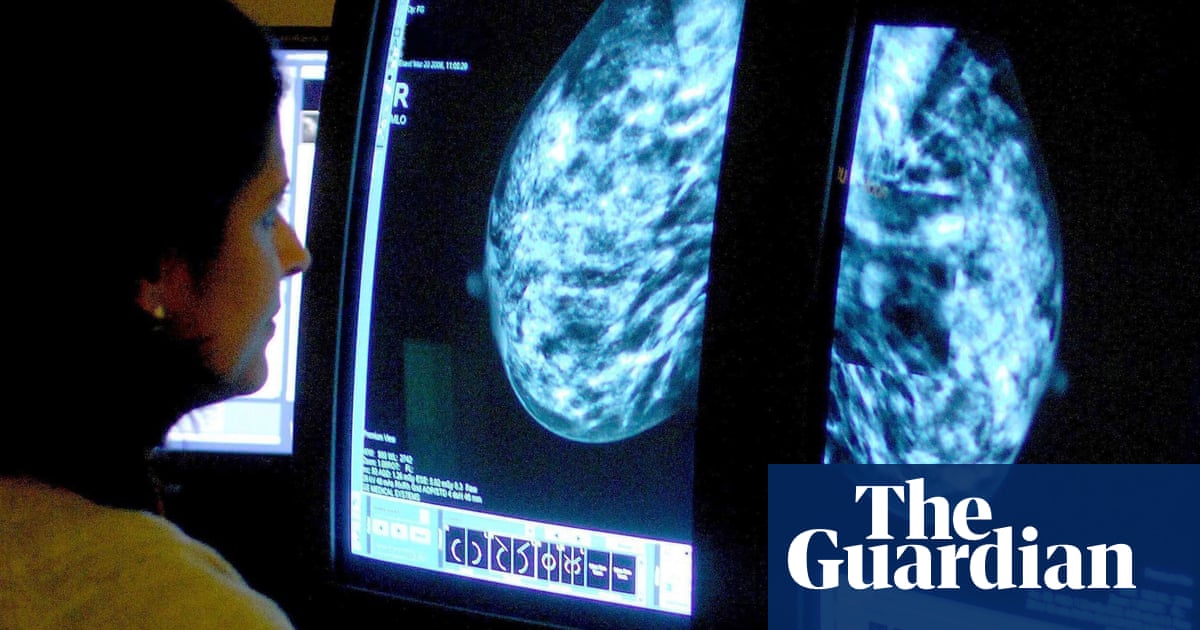
Common cancer screening tests may not extend people’s lifespans, with the possible exception of colorectal cancer screening, data suggests.
Although the findings do not indicate cancer screening should be abandoned, scientists say patients should be better counselled about the risks and benefits of screening.
Many countries have introduced screening programmes to detect cancers at an earlier stage, with tests such as mammograms for breast cancer and prostate-specific antigen (PSA) testing for prostate cancer routinely offered in the UK.
“A slogan that is often applied is ‘screening saves lives’,” said Michael Bretthauer, a professor of medicine at the University of Oslo in Norway, who led the research. “The most meaningful interpretation of that slogan is that people live longer with screening than without screening. We wanted to know if this was true.”
To investigate, Bretthauer and colleagues combined the results of 18 long-term randomised clinical trials that examined rates of death from all causes and estimated the number of years of life gained from screening with six commonly-used tests, including mammography screening for breast cancer; colonoscopy, sigmoidoscopy or testing the stool for blood to detect colorectal cancer; computed tomography (CT) screening for lung cancer; and prostate-specific antigen (PSA) testing for prostate cancer.
The study, which involved 2.1 million individuals and followed their health for at least nine years, found that evidence does not substantiate the claim that these tests save lives by extending lifespan – except possibly for colorectal cancer screening with sigmoidoscopy. Here, a flexible tube with a tiny camera is used to inspect inside the back passage and the lower part of the bowels. The research, published in JAMA Internal Medicine, estimated that it may extend life by approximately three months.
“Obviously, if you take the whole population of, say, women who undergo mammography screening, there will be some whose lives are saved by screening,” said Bretthauer. “I think we can also assume there will also be some who will live longer than if they had not attended screening.”
However, he explained that for the population effect to be zero, as this study found, there must also be some individuals whose lives were shortened as a result of screening.
“Screening can trigger a cascade of diagnostic and therapeutic interventions, all of which pose some risk of death,” said H Gilbert Welch and Tanujit Dey at Brigham and Women’s hospital in Boston, US, in a related editorial.
For instance, a small number of women who have a breast removed following a mammogram may develop a blood clot or infection. Complications can also arise during testing, such as perforation and bleeding during colorectal cancer screening.
The problem, said Bretthauer, is that no one knows in advance which group they will be in: “I may be fortunate and be in that group that has a longer life [as a result of screening], or I may be in a group that has a shorter life because I experience a complication.
“This study does not argue against screening or participating in screening. But it hopefully contributes to a reasonable discussion about what people can expect from screening,” Bretthauer said. “I think organisations, institutions and policymakers who promote cancer screening tests as saving lives should probably be a little bit more careful with that message in future.”
Rather, he says, patients should routinely be presented with data on the relative risks and benefits of screening and cancer treatment so that they can make more informed decisions about their health.
Nicola Smith, senior health information manager at Cancer Research UK, cautioned that the study did not cover all of the recommended national screening programmes and tests that are on offer in the UK.
“Cancer screening is for people without symptoms and can detect the disease early when it’s more likely to be treated successfully,” she said. “There’s good evidence that taking part in all the UK cancer screening programmes – which cover breast, bowel and cervical cancer – can reduce the chances of dying from that cancer.
“The National Screening Committee considers all the evidence when recommending which screening programmes should be offered, and have strict criteria, including the balance of harm and benefits. Screening isn’t perfect and it’s important that people have good quality information to help them decide whether to take up a screening invitation.”












